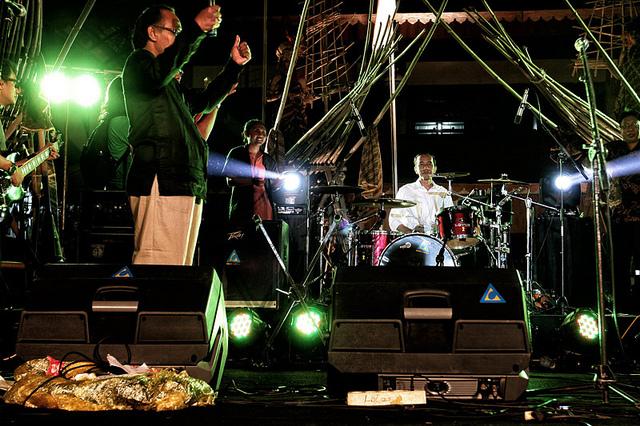It’s official, Joko Widodo has been elected Indonesia’s new president. Last night, hours after Prabowo’s dramatic announcement that he was quitting the election, Indonesia’s General Election Commission (KPU) declared Jokowi and his running mate Jusuf Kalla (together known as Jokowi-JK) the winners with 53.15% of the votes. And that’s a good thing for Australia.
For one, Jokowi’s looking to strengthen Indonesia’s state capacities as well as its economy. If you look at the ‘Vision Mission’ statement (PDF) of Jokowi-JK (summary in English here), many of its policies relate to improving governance and law enforcement, reducing inequality, boosting the economy via productivity and competitiveness, and raising the quality of life. It’s early days and Jokowi remains inexperienced at the national level, yet the combination of his positive track record coupled with his commitment to transparency and efficiency give cause for modest optimism. And here’s why: a strong and stable Indonesia is an Indonesia that can do more in international affairs.
Team Jokowi has already indicated that it intends to pursue greater middle-power diplomacy as well as expand engagement among Indo-Pacific partners, especially ASEAN. A strong and confident Indonesia can continue to act both as the de facto head of the Southeast Asian grouping as well as a mediator role amongst the region’s more powerful actors. If you take, for instance, Jokowi’s commitment to protecting Indonesian migrant workers abroad, he’ll need good working relations with Malaysia, a country with which Indonesia also has its diplomatic ups and downs yet hosts a significant number of Indonesian maids.
Jokowi intends to boost Indonesia’s maritime interests as well and says he will increase the military budget to 1.5% of GDP within five years. Given the volume of trade passing through archipelagic waters, Australia’s economic interests are also served by a stronger Indonesian naval presence. I would note, as my colleague Ben Schreer argues, Indonesia’s military modernisation is by no means going to be easy to achieve.
Jokowi also has a pragmatic and level-headed approach in negotiating which will be desirable during diplomatic shocks such as Snowden revelations. He sees a lack of trust in bilateral relations, but he’s keen to build better government, business and community ties with Australia. A more capricious figure, egged on by domestic outrage and nationalistic fervour, may have compounded the challenges in a diplomatic relationship already marked by highs and lows.
All of that bodes well for Australia’s relations with Indonesia and its interests in the region. In particular, we would do well to see Jokowi as a problem-solving president. That means there’s an opportunity to think about what we want to do together in the medium to longer-term, given Jokowi’s five-year (possibly, decade-long) tenure. For one, that would add more ballast to our relationship, insulating it somewhat from diplomatic shocks. Also, Australia-Indonesia cooperation could form the axis around which more regional involvement on key defence and security issues could rotate.
These are only preliminary thoughts for now as there are a number of ‘unknown unknowns’ along the way. Of course, Australia can help this process along by showing a willingness to be transparent and communicative on some of the pricklier issues. It’s a long road ahead that starts with Jokowi’s inauguration in October, but for now, Australia, along with Indonesia, can celebrate.
Natalie Sambhi is an analyst at ASPI and editor of The Strategist. Image courtesy of Flickr user Jazzuality.
